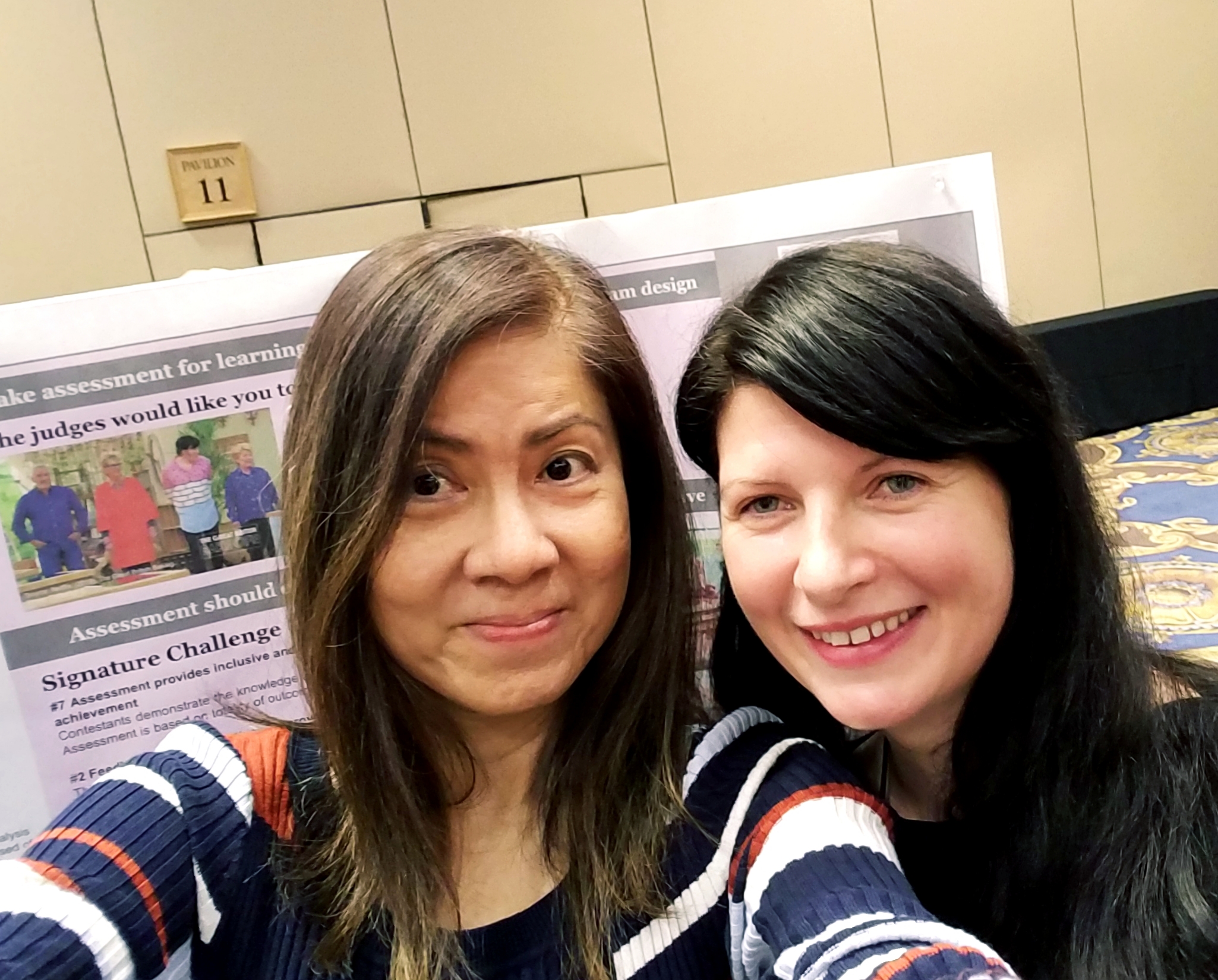3 Recent Questions about Assessment
I don’t have to walk far from home to see “education centres” flourishing at almost every turn and corner in my neighborhood. The tuition industry in Singapore is a billion-dollar industry. I’ve been told that a certain tutor has become a millionaire without having to step out from his home, his tuition center. Why don’t I reap some of this rich harvest too, friends and family ask? No, not a snob, I’m just still thinking about how to reconcile this with my professional goals and educational philosophy.
-
Are Singaporeans obsessed with standardized testing?
It’s likely not just a Singapore nation’s obsession (complicated by competition for seats in desired schools and limited local universities), but entire education systems seem to be preoccupied with standardized tests performance, i.e. summative assessment. This in turn feeds into the Singapore frenzy of private and supplemental tutoring to help stressed and distressed students to get by.
“Learning is about so much more than filling in the right bubble,” the president (Barack Obama) said.
President Obama wants to restrict testing to no more than 2% of class time. I wonder if all the attention to testing has trickled down to the teacher’s level in a negative way? (It seems to be so in the USA.) When I worked with instructors in the USA, assessment was a keyword that popped up frequently, in questions such as, “How can I create assignments for large size classes? How do I grade these assessments more efficiently? How do I give feedback? How do I know my students understood and got the concepts right? Do they know how to transfer the skills to their work contexts? Etc.” These instructors’ concern with assessment at the course level are certainly legitimate. It is not wrong to assess student learning. The confusion is over how and how often we are assessing, and what assessment looks and could look like [Note: Along with assessment are instructor concerns with learning motivation and holding students’ attention.]
-
Is assessment necessary?
Someone posed this question on Twitter today, and I thought I would share the tweet with the link to other resources:
Do we need assessment at all? asks @SallyJordan9 of the Open University #eassessmenthttps://t.co/6nGSv1r6qS
— Heather Chesley (@RMHeatherC) February 15, 2016
This question raises further questions about the purpose and format of assessments. Teachers assess to gauge student learning. If we are frequently exposed to assessment in the form of tests and exams, we might grow accustomed to thinking that that is all there is to assessment. As President Obama noted, it seems assessment assumes the shape of bubbles and students pick one to shade. But assessment for and of learning doesn’t need to look like that. Reflective blogging can be a form of assessment. Inquiry projects I’ve asked my students to do can be assessments. Audio recordings can be assessments. Instead, assessment has become a much maligned topic.
I wouldn’t create an assessment for the sake of just having an assessment. However, if you think about vocational training and the preparation of highly skilled professionals like engineers, doctors, healthcare professionals, and so forth, I would say assessment of student learning is necessary (process and outcome). I ask myself, “Would I go to a doctor, surgeon, or any healthcare professional who hasn’t been certified by the Boards?” A resounding NO. Hence, in the education of these professionals, competency assessments are essential. Outcomes-focused education dominates the preparatory training of these professionals. There are specific and explicit learning competencies we desire that these professionals develop. We want to know before we place our lives in their hands if they had the requisite training and can get the job done, well. Can they support the maintenance of the Mass Rapid Transit (Singapore’s subway/trains)? Can they help save lives? But I’d advocate using additional forms of assessment, including portfolios, to enhance competency assessments of these professionals.
Competency assessments tend to rely on Bloom’s Taxonomy to craft TOS (Table of Specifications). I have personally gone beyond Bloom, preferring to teach for and assess understanding of concepts in language, communication and cognitive domains. Again, my own approach/philosophy is not a disdain of what other teachers do to assess vocational and professional competencies.
-
What does the new wave of assessments in the digital age look like?
As we learn more about learning and teaching, someone has also asked this about assessment:
How are assessments changing to reflect the growing use of tech in edu? Find out: https://t.co/ksToGonvaw#CTEmonthpic.twitter.com/a72azbCqoG
— NAEP (@NAEP_NCES) February 11, 2016
They are definitely changing. I came across some new web apps by Google for educators (Doctopus, Goobric, and the add-on, Flubaroo) that some folks had tweeted about. I will have to spend some time checking out these apps.
And this one:
Awesome…Why not? Science Students Are Writing Wikipedia Articles Instead of Term Papers https://t.co/p3rtFxUs69
— Philip Mai (@PhMai) February 14, 2016
I hope you get the drift. Assessments don’t all have to be MCQ tests or have to be exams. Letting students write for Wikipedia supports the development of certain skills and attributes; writing for a global audience is immensely valuable and scary at the same time. It helps them to develop confidence, precision, and clarity of thinking.
Teachers have to deal with assessments (or whatever you call them) regularly. Assessments are an integral part of teaching and learning. Unfortunately, not enough is written about it in the open. (The last blogpost I wrote about online assessments was dated December 16, 2014). We prefer to be designers than assessors. I hope to share alternative forms of assessment, grading and feedback as I come across them.


